More From the Los Angeles Times
-
-
Nov. 14, 2024
-
-
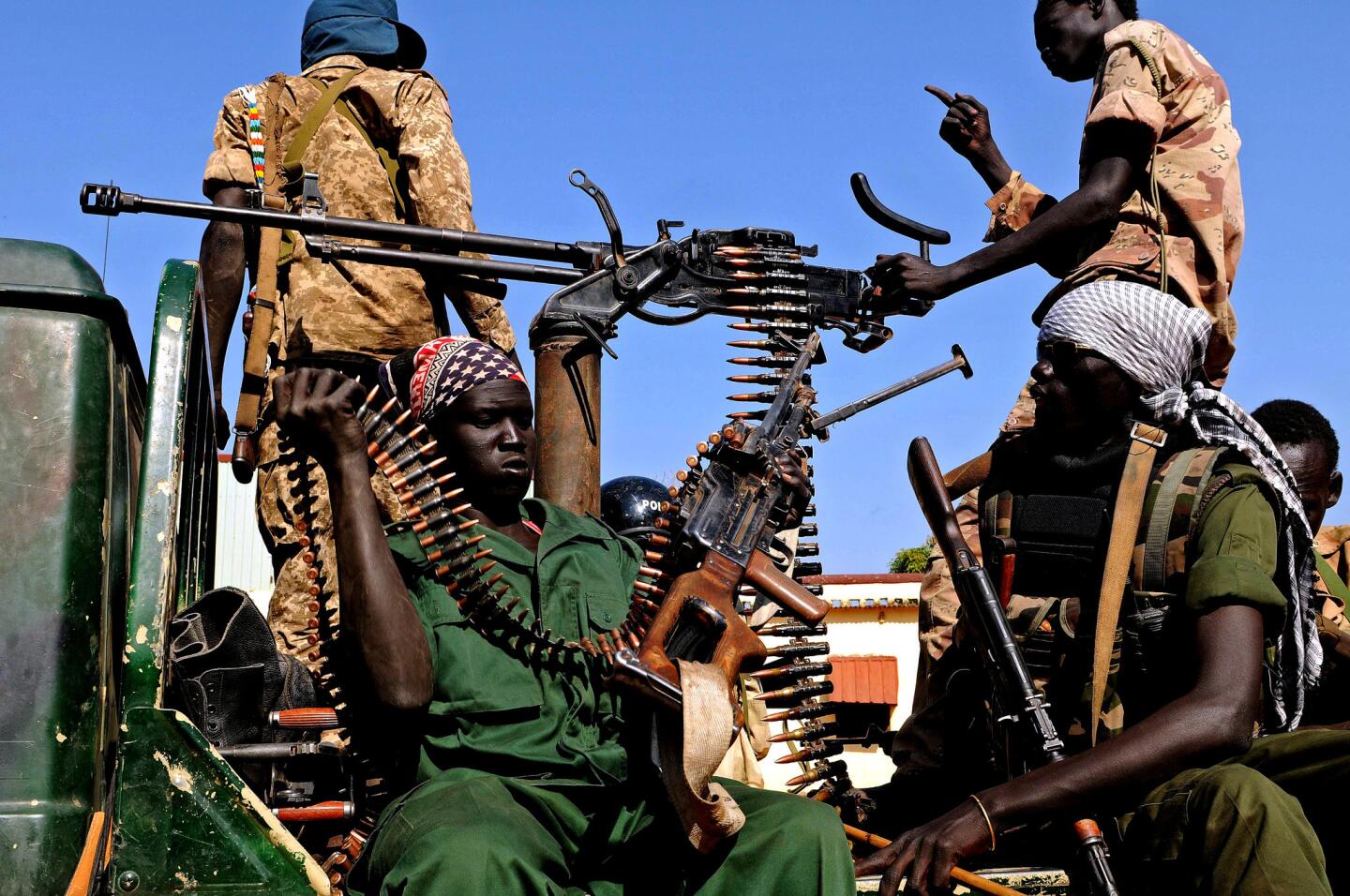
Soldiers in the Sudan People’s Liberation Army patrol the streets in a pickup truck after capturing the town of Bentiu. The ethnic killings that began in South Sudan last December claimed an estimated 10,000 lives. (Simon Manai / AFP/Getty Images)
Prosecuting the leaders responsible would destabilize the fledgling country. Granting the killers amnesty, however, risks future violence, rights groups warn.
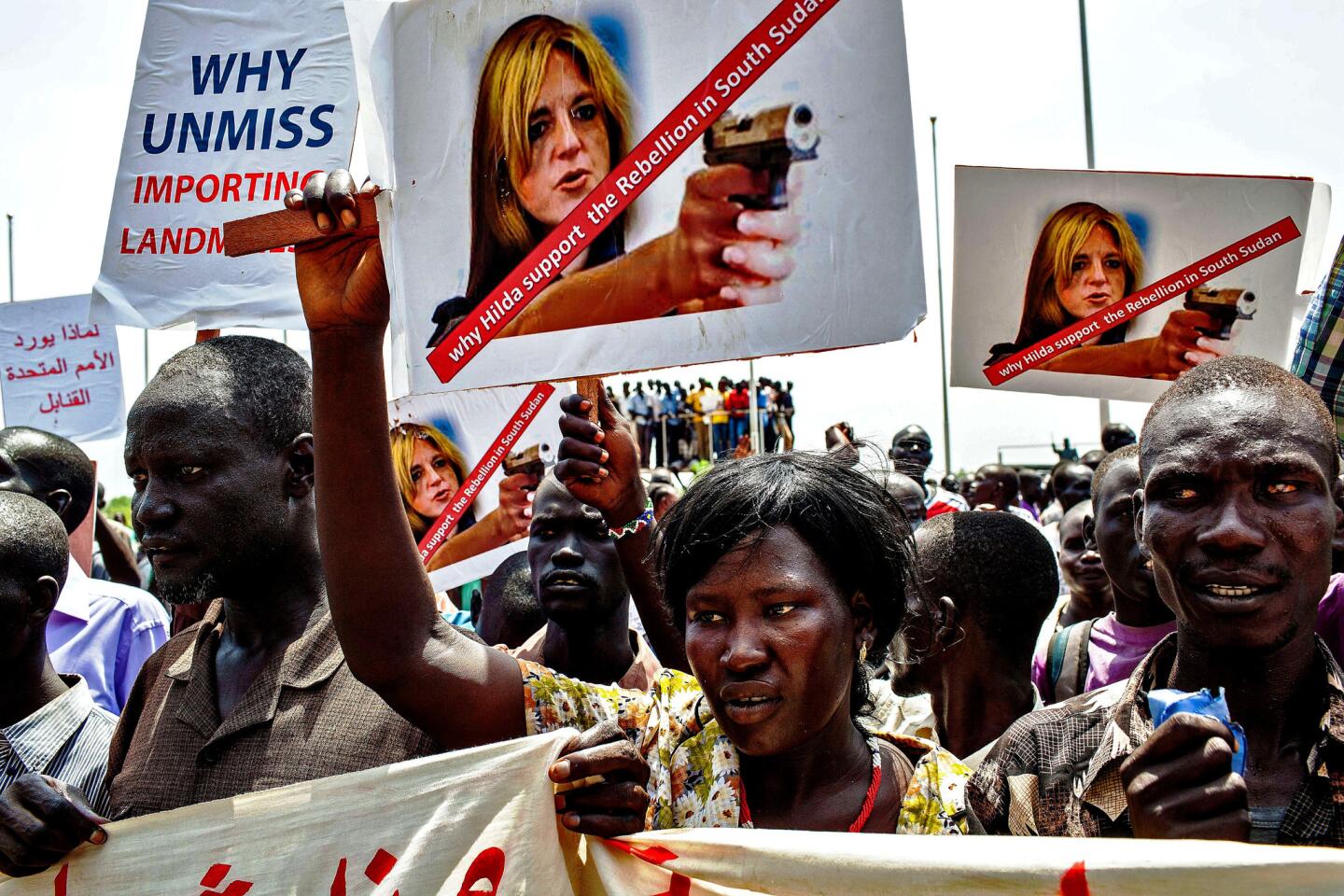
South Sudanese demonstrators hold placards depicting the U.N. special representative for South Sudan, Hilde Johnson, during a rally against foreign intervention and to show support for President Salva Kiir in Juba, the capital. (Andrei Pungovschi / AFP/Getty Images)
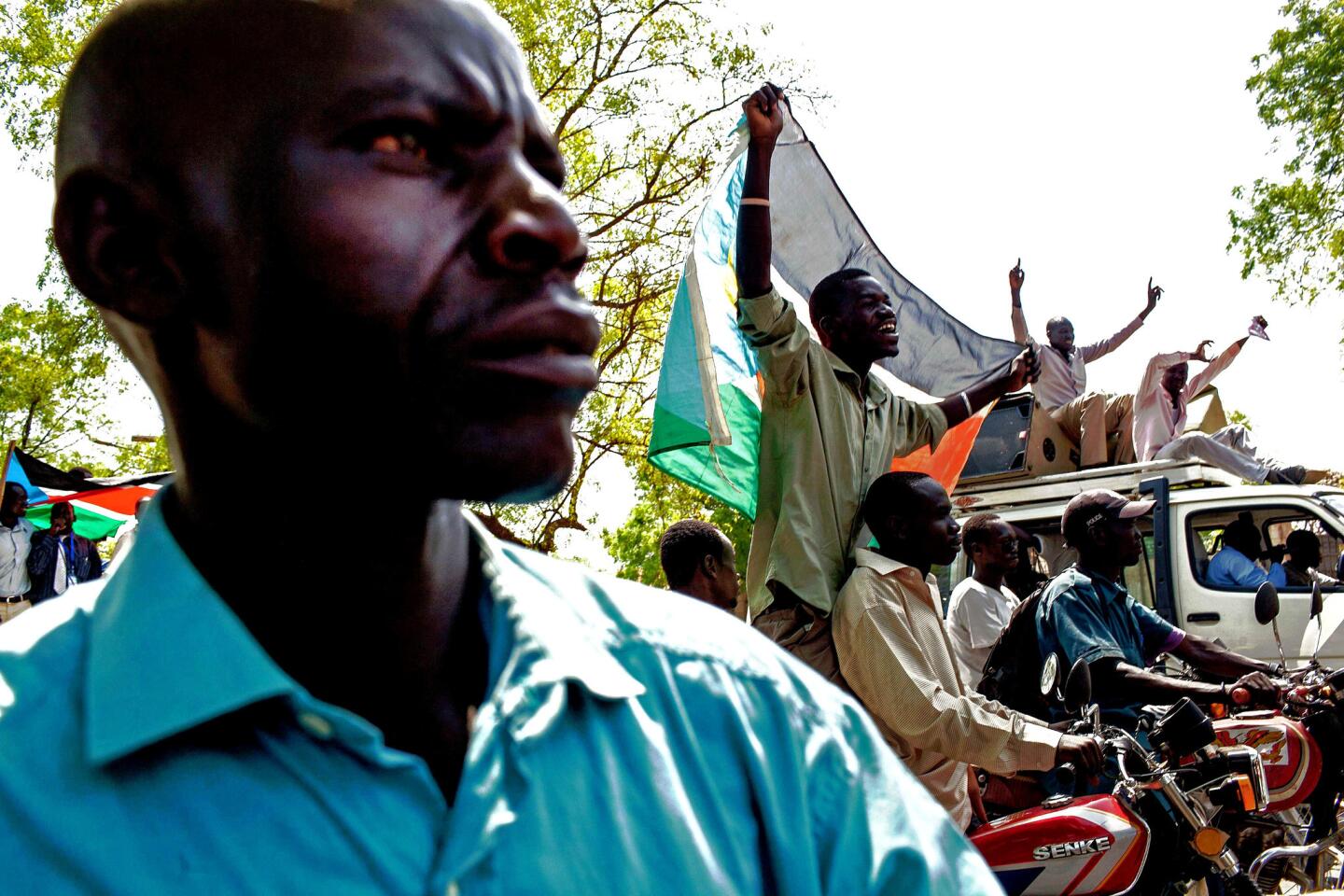
South Sudanese protesters shout slogans during a rally against foreign intervention and to show support for President Salva Kiir in Juba, the capital. (Andrei Pungovschi / AFP/Getty Images)
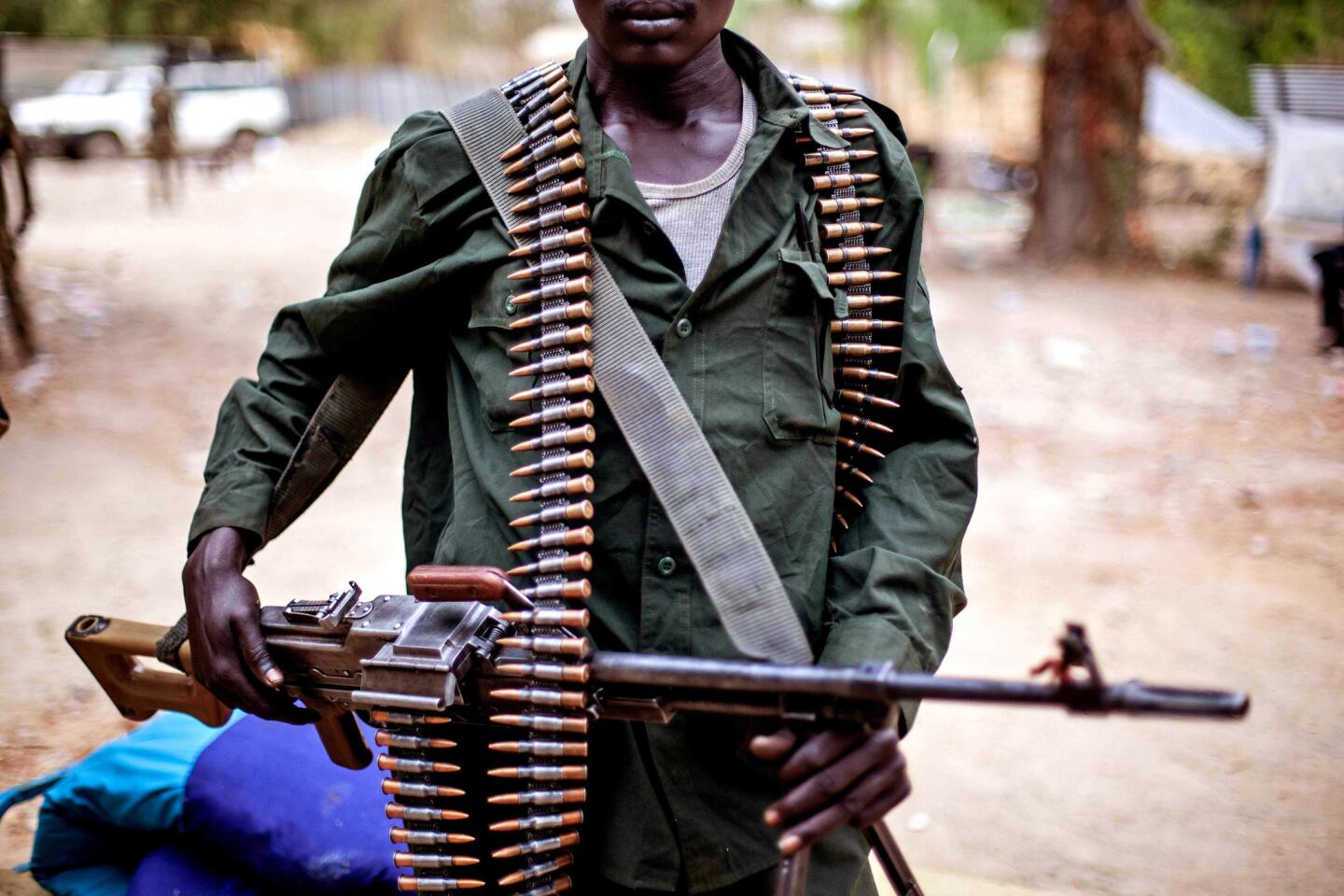
A member of South Sudanese antigovernment forces wields a machine gun in Malakal. (Andrei Pungovschi / AFP/Getty Images)
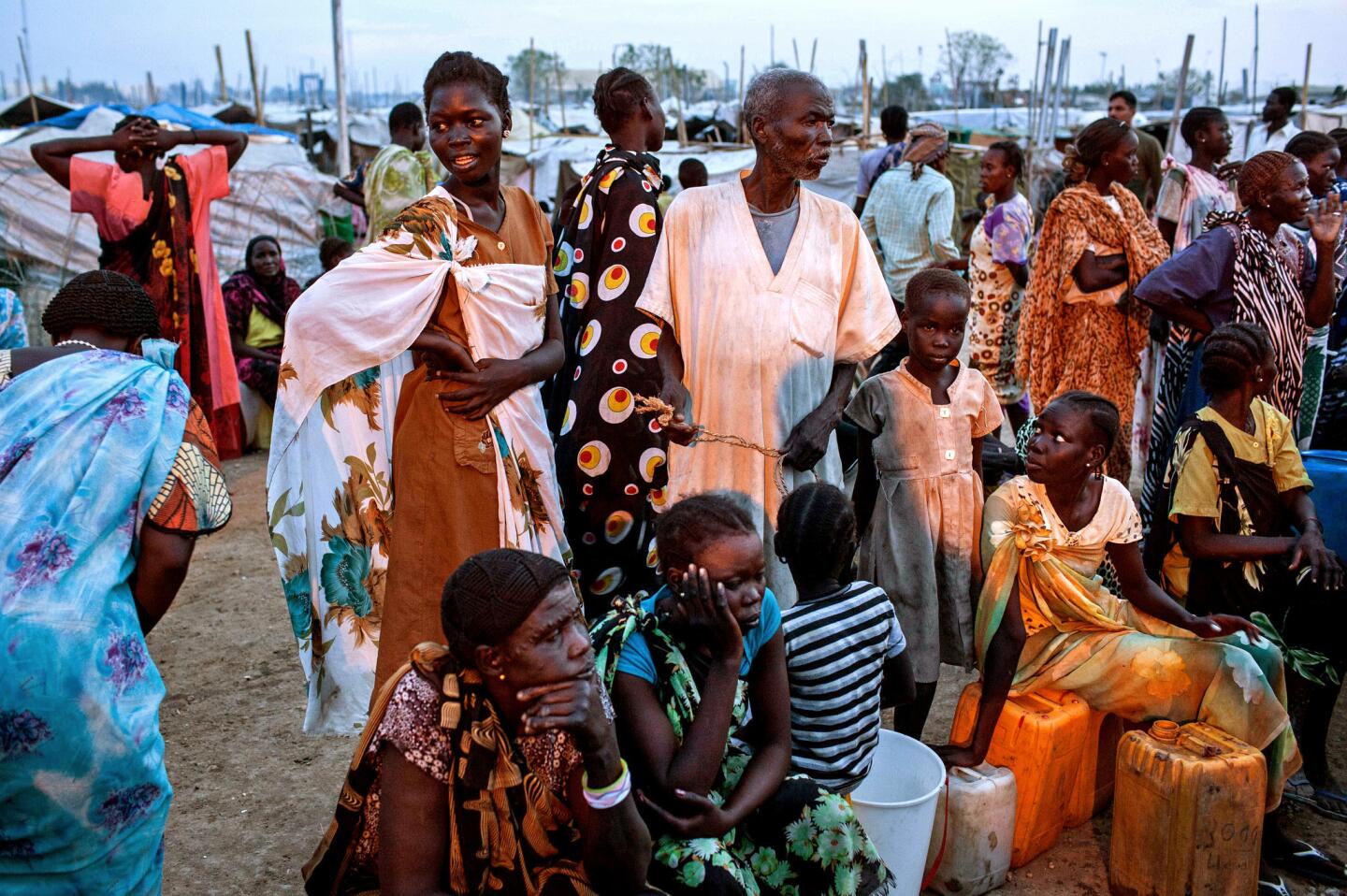
Displaced South Sudanese wait for deliveries of water and food in Malakal as U.N. peacekeepers conduct patrols. (Andrei Pungovschi / AFP/Getty Images)
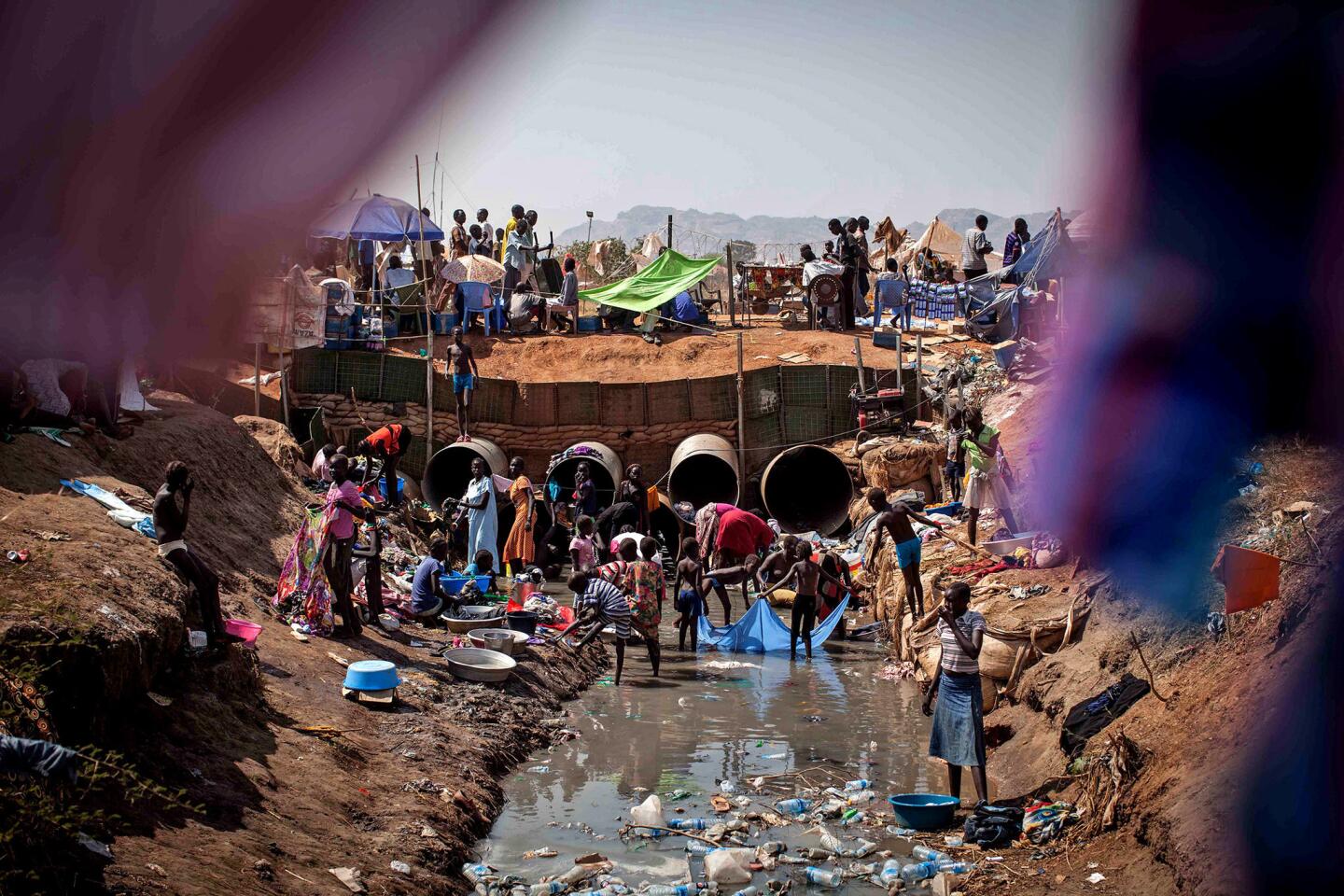
A United Nations peacekeeping base in Juba, South Sudan’s capital, is home to thousands displaced by ethnic fighting. (Nichole Sobecki / AFP/Getty Images)
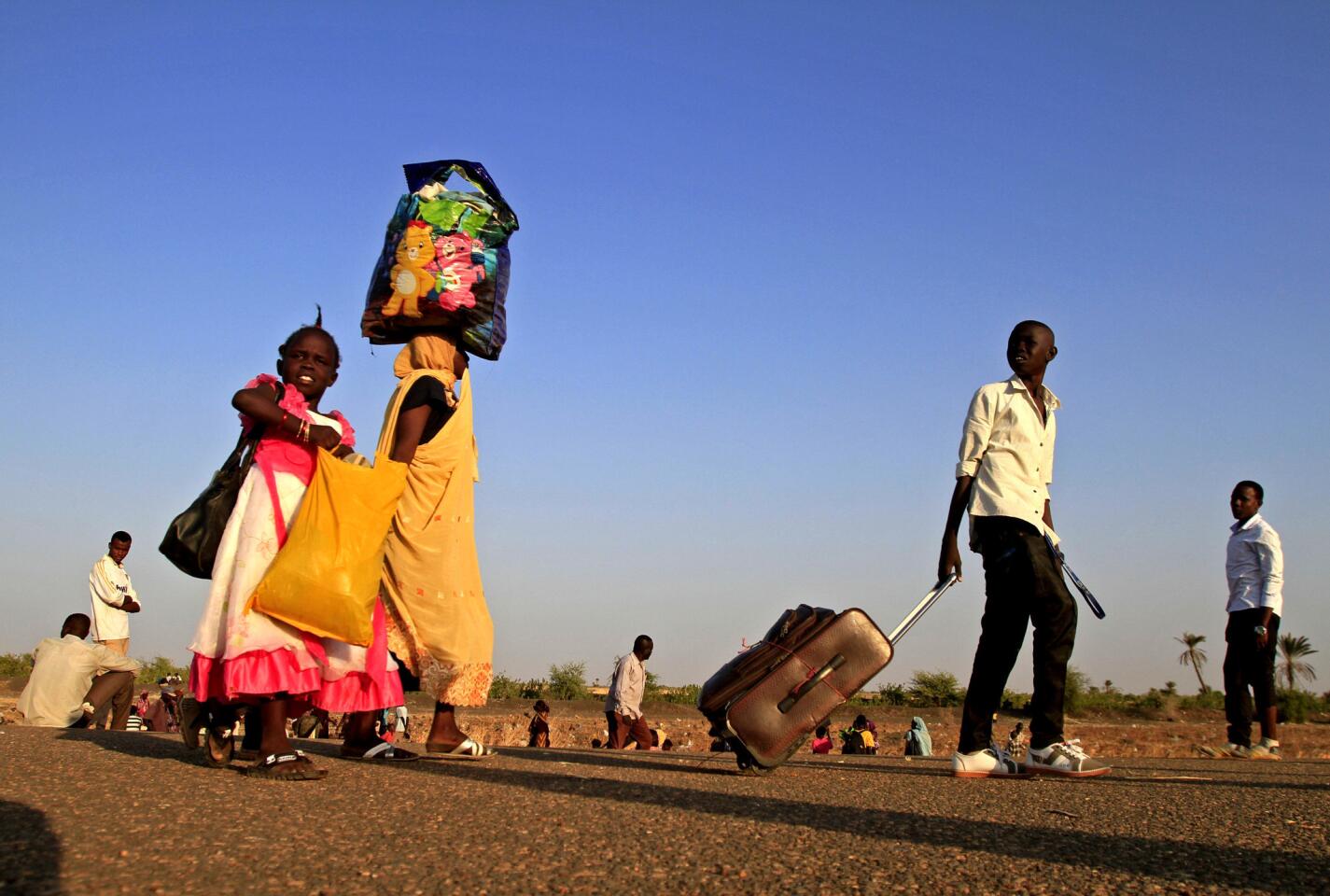
South Sudanese refugees arrive at a border checkpoint in Joda, Sudan. (Ashraf Shazly / AFP/Getty Images)
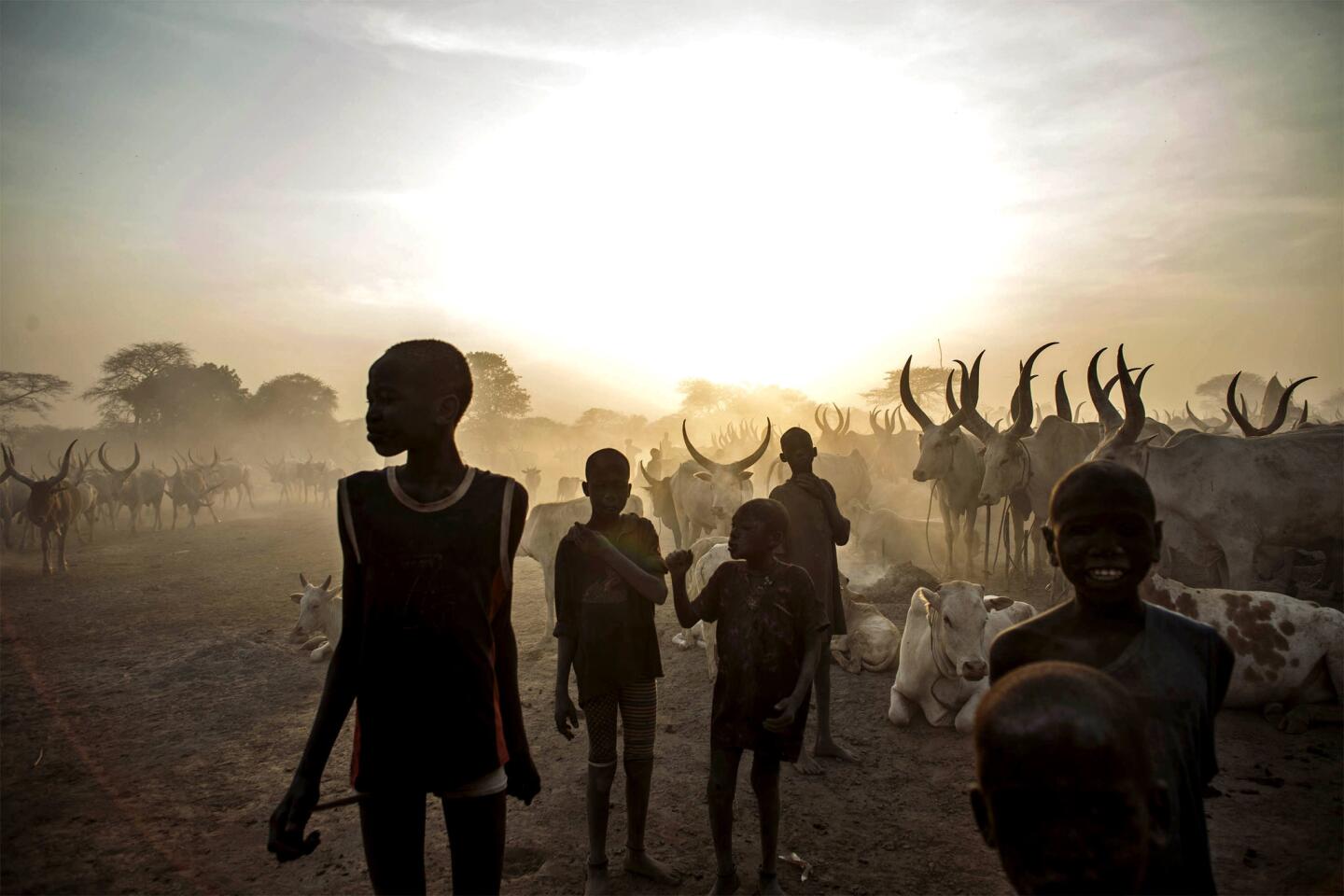
South Sudanese children from the Dinka tribe pose with cattle at a camp in the town of Yirol. Members of the Dinka and Lou Nuer tribes each have carried out massacres in the bloodshed that began in December. (Fabio Bucciarelli / AFP/Getty Images)
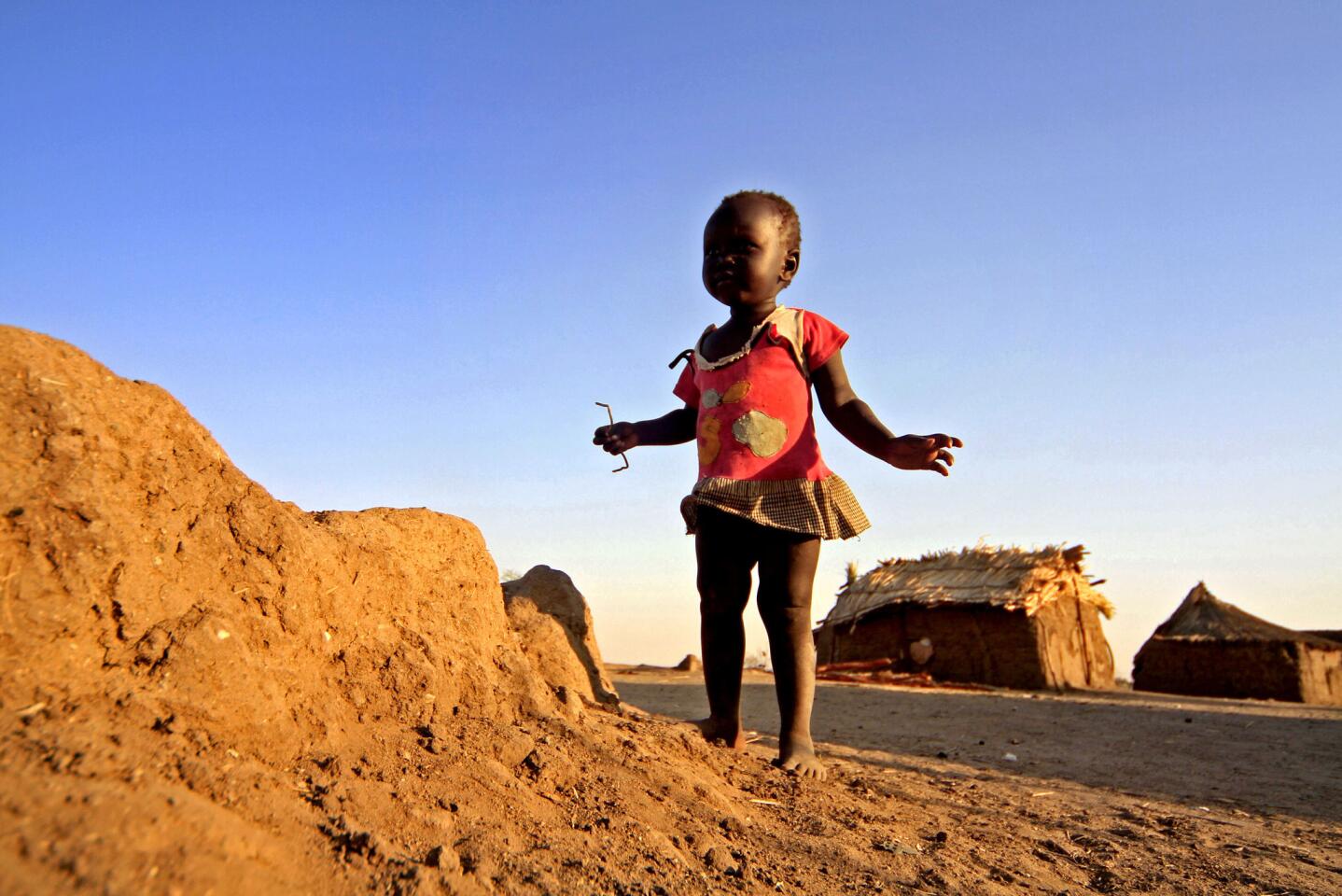
A young South Sudanese refugee stands at a Sudanese border checkpoint in Joda, where Sudan’s White Nile state meets South Sudan’s Upper Nile state. Thousands have fled north into Sudan to escape fighting between South Sudanese rebel and government forces. (Ashraf Shazly / AFP/Getty Images)
Nov. 14, 2024